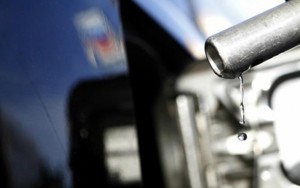US gasoline tax hike may dent fuel demand in oversupplied market
NEW YORK (Reuters) -- A potential increase in gasoline taxes in several US states could put a dent in demand at the pumps and mark another setback for a market already flooded with excess fuel.
States where gasoline taxes in some cases have not risen in decades, are discussing hikes. Conditions might be ripe for the proposed increases to win approval in state legislatures, tax experts said this week.
The discussions come at a time when US refiners are still reeling from their worst year since the shale boom and face the prospect of weak retail demand for the first time in five years. Oversupply, in the world's second largest energy consumer, was rampant in 2016 and this year looks no different.
Any significant increase in taxes is likely to be passed on to the consumer. Most traders said a small increase in taxes, of about seven to 10 cents a gallon, could go largely unnoticed by the consumer, but anything bigger could hurt demand.
Every 10% increase in year-over-year retail prices equates to a 0.8% decline in gasoline demand, by one trading house analyst's estimate.
"It's all a question of how quickly cause and effect can kick in," said Sandy Fielden, director of oil and products research at Morningstar.
In October, New Jersey Governor Chris Christie signed into law a gasoline tax hike of 23 cents a gallon that analysts say could have lowered incremental demand in the state
Now states including Alaska, Oklahoma, Mississippi, South Carolina and Tennessee – all of which voted for US President Donald Trump in November – are debating gas tax increases in their state legislatures.
The national average gasoline price at the pump was $2.26 a gallon on Thursday, according to motorists advocacy group AAA. Increased production and lower demand has reduced overall gasoline prices of late.
The new US administration is generally viewed as pro-energy. If it eases regulations, including biofuels requirements under the Renewable Fuel Standard Program (RFS), gasoline demand could jump overnight, assuming gasoline is cheaper than ethanol, Fielden said.
"It's guaranteed that gas taxes do have an impact on demand," said Patrick DeHaan, petroleum analyst at Gasbuddy, who added that it was hard to quantify because of varying factors.
The recent surge in US sales of gas-thirsty sport utility vehicles (SUVs), helped by low fuel prices, may keep demand elevated. But more money spent on gasoline would reduce disposable income for US consumers.
"If prices go up again for whatever reason, whether it's taxes or the cost of oil, then you would expect that discretionary spend to crash down again," Fielden said.
Gasoline futures still trade around half the levels were in mid-2014 and are expected to rise further as a global crude oil glut is reduced through OPEC production cuts.
Inventories of gasoline in storage terminals and tanks sit above 5-year averages and stocks on the US East Coast hit another record last week.
Reporting by Devika Krishna Kumar in New York; Editing by Tom Brown







Comments